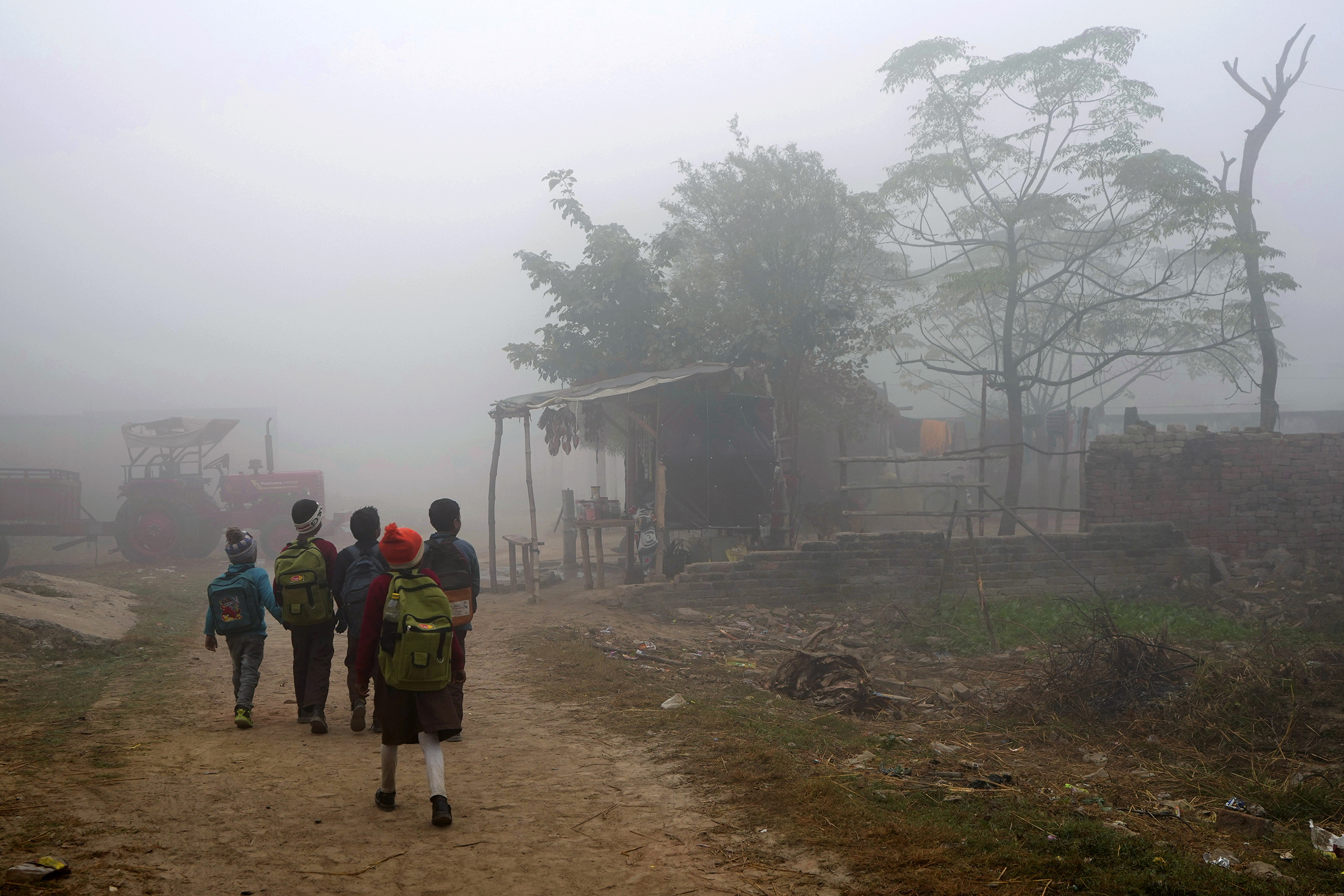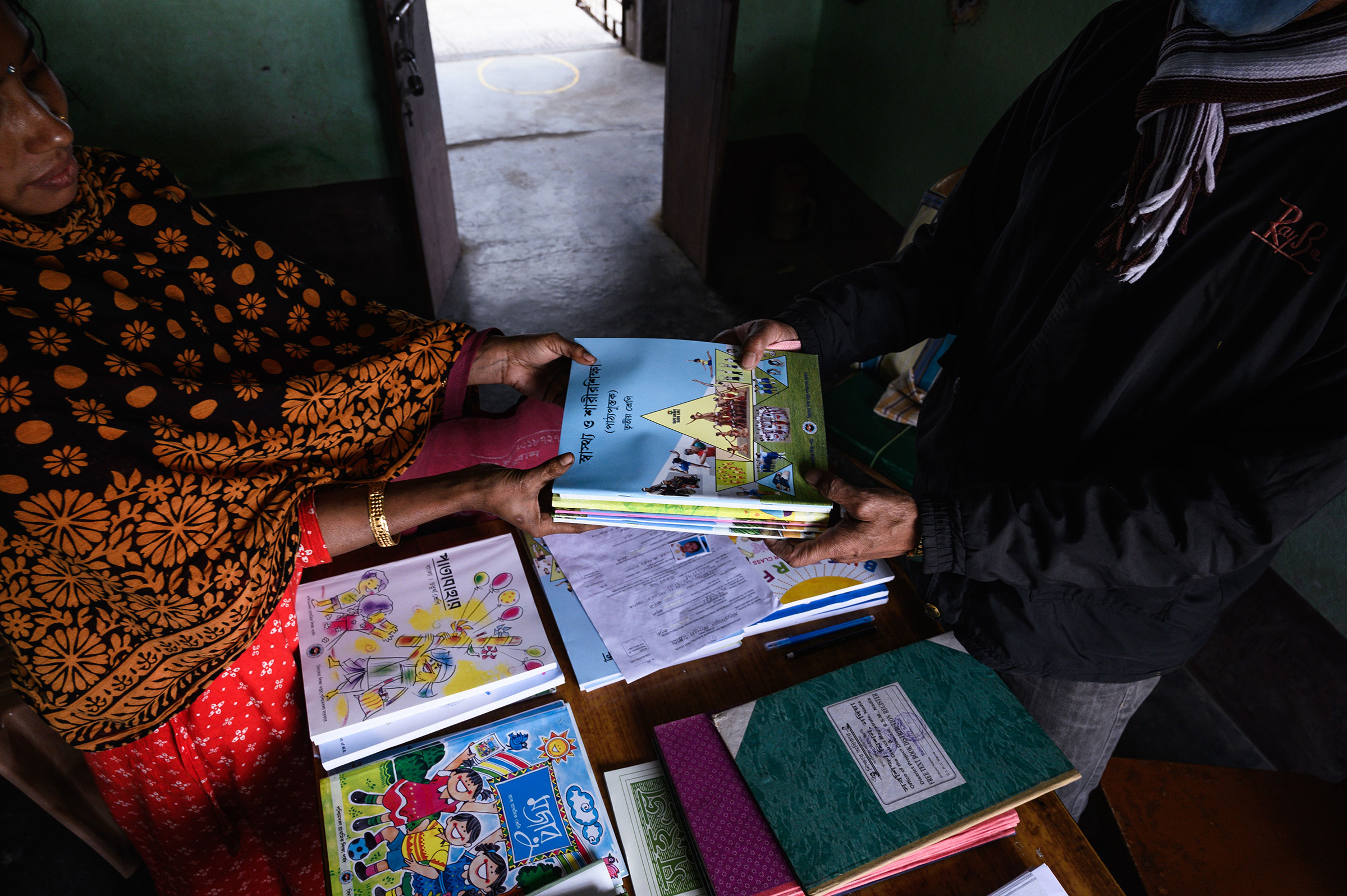School textbooks have become the latest battleground for Hindu nationalism in India, as education officials have deleted key passages about Muslim rule during the Mughal empire.
The textbooks, released in early April, are missing sections that covered hundreds of years of the Mughal empire, the 2002 Gujarat riots in which hundreds of Muslims died while current Prime Minister Narendra Modi was chief minister, and the assassination of Mohandas K. Gandhi, who was targeted by a Hindu extremist.
India’s National Council of Educational Research and Training (NCERT) announced changes to the syllabus last April, which recently sparked a backlash from critics on social media. Indian students in class 12 relying on NCERT textbooks will no longer study chapters based on the Mughal empire, which was in power from the early 1500s until the mid 1700s. NCERT textbooks are used by thousands of schools across the country, and the country’s most populous state, Uttar Pradesh, recently announced that it would be using these textbooks for the school year that began this week.
NCERT Director Dinesh Prasad Saklani blamed the cuts on a “rationalization process” prompted by COVID-19 and the need to lighten the workload for students. “They recommended that if this chapter is dropped, it won’t affect the knowledge of the children and an unnecessary burden can be removed,” Saklani said.
But the changes to the textbooks fit into a larger trend pushed by the BJP in Indian politics that emphasizes India as a nation of one religion, experts say. “They are saying there’s nothing political about it. But it’s got nothing to do with COVID,” says Aditya Mukherjee, an Indian historian who taught at Jawaharlal Nehru University for more than four decades. “It has all got to do with their politics.” The newspaper Indian Express, which published investigations on the omissions last year when the changes were first announced, and again earlier this week, criticized the NCERT’s “weak” justification. In a scathing editorial, they wrote that the government wishes to “escape unpalatable facts.”
The Modi-led Bharatiya Janata Party (BJP), in power since 2014, is employing a strategy to win the next general elections in 2024 by consolidating the Hindu vote through cementing the narrative that Hindus are under threat from Muslims, says Harbans Mukhia, a historian of medieval India. India’s Hindus make up about 80% of the country’s population; Muslims account for 14%. The new textbook guidelines are just the latest in a series of policies designed to erase or belittle Muslim contributions to Indian society while simultaneously glorifying Hindus, historians argue.
Some BJP leaders have defended the textbook changes, including Kapil Mishra, who applauded in an April 3 tweet that Mughal emperors are “not in the history books, they are in the dustbin.” Modi spoke broadly last year about how Indian history was full of “concocted narratives” that needed to be corrected.
Amid the political fighting, historians worry about the effect on students who will use these altered textbooks in school. “You cannot understand modern India without the Mughals—so it seems to be a silly and self-defeating embrace of ignorance about one’s own origin,” says Audrey Truschke, associate professor of South Asian history at Rutgers University. “Erasing Mughals from textbooks does not erase them from India’s history.”

The dangers of erasing history
Mughal rule was a crucial time period in India’s development leading up to British colonization, and Mughal influence still permeates Indian culture. When India became independent in 1947, Prime Minister Jawaharlal Nehru delivered his speech at the Red Fort, built by Mughal Emperor Shah Jahan’s rule. In fact, Mughals built many of India’s famous monuments, including the Taj Mahal. They helped make biryani and many everyday spices popular. Traditional dress, such as men’s kurta pajama and women’s shalwar kameez, became common during the empire. Under Mughal rule, kathak dance flourished and so did Indian classical music. Many Indian languages, including Urdu and Hindi, evolved.
This isn’t the first time India has fought over the contents of its textbooks. NCERT was created in 1961 after Indian independence; it assigned a committee of historians and academics to holistically document the country’s history in school textbooks. But the BJP and right-wing Hindu parties have repeatedly tried to change NCERT’s books over the years, including attempts in the 1970s and early 2000s that were unsuccessful following protests from historians.
In the early 2000s, the hardline Hindu group Rashtriya Swayamsevak Sangh (RSS), to which Modi used to belong, prompted the NCERT to delete sections on the oppression of lower caste Indians as well as Mahatma Gandhi’s assassination by Nathuram Godse, who some historians say was an RSS member. (The current textbooks mention the murder but leave out key context about the Hindu right’s influence on the killer.) Mukherjee was among a handful of historians to publish a detailed booklet documenting the numerous errors in those textbooks from the early 2000s, which helped get those books thrown out.
NCERT’s current efforts to strike Mughal history from school textbooks comes amid a series of other moves aimed at obscuring Muslim influence in India, including the changing of city names to erase Muslim or Mughal origins, hyper nationalist Bollywood films and politicians fusing Hindu mythology with history; and open calls for genocide of Muslims from religious leaders going unpunished. “Globally, whenever a particular community is demonized over a long period of time, when they are erased from history, these are signs of an impending genocide,” says Aditya Mukherjee, an Indian historian who taught at Jawaharlal Nehru University for more than four decades and has closely followed efforts to communalize textbooks. “It doesn’t happen all of a sudden. It is preceded by this kind of isolation of a community…so that in ordinary life people…don’t read their history; all they hear about them is how they are terrorists.”
In the absence of sound history being taught in schools, some organizations are trying to provide an accurate portrayal in other ways. Eshan Sharma, founder of Karwaan, a student-led history collective, features free conversations with prominent historians, which are available online. “The internet is a liberal medium; it allows you to create a repository that could be looked at by generations long after we are gone,” says Sharma. (Sharma is also a fan of the memes that have emerged over the textbook controversy; one depicts a theory that the Taj Mahal must have been built by aliens, since the Mughals weren’t around.)
But efforts like Sharma’s may not be enough to match the influence of the NCERT textbooks used throughout the country. “Unless there is a political change, we are not going to be able to combat this,” says Mukherjee.
Correction, April 7
The original version of this story misstated Prime Minister Narendra Modi’s role as an official in Gujarat. He was Chief Minister, not State Governor
More Must-Reads From TIME
- The 100 Most Influential People of 2024
- Coco Gauff Is Playing for Herself Now
- Scenes From Pro-Palestinian Encampments Across U.S. Universities
- 6 Compliments That Land Every Time
- If You're Dating Right Now , You're Brave: Column
- The AI That Could Heal a Divided Internet
- Fallout Is a Brilliant Model for the Future of Video Game Adaptations
- Want Weekly Recs on What to Watch, Read, and More? Sign Up for Worth Your Time
Write to Sanya Mansoor at sanya.mansoor@time.com
